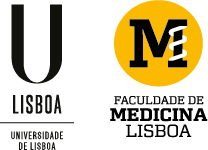Professor Francisco Antunes was at CMTV to answer some questions about the latest news related to the new coronavirus.
Regarding the fact that families can eventually reunite, and grandchildren can visit their grandparents, Prof. Francisco Antunes argues that, with children having mild symptoms or even being asymptomatic, from the point of view of covid-19 disease, the great risk is that they transmit the virus. Nothing prevents the interaction between grandparents and grandchildren, but it is necessary to take into account the age and vulnerability of the elderly, especially in situations where there are cardiovascular problems, hypertension, obesity ...
Living together can be possible as long as the usual rules, distance, hand washing and the use of masks are maintained, both by grandparents and grandchildren.
Regarding the genome issue, it is necessary to take into account that viruses evolve. The study of the virus genome aims to show which mutations it has been undergoing. This virus is “extraordinarily mutagenic”, says Prof. Francisco Antunes, and some mutations may have some implications regarding the transmission of the virus. If there are major mutations, we may have implications for the discovery of the vaccine, or even the treatment to be applied.
Mutations in the virus genome are called variants and can condition the discovery of a vaccine, so try to focus the vaccine on a stable part of this genome so that it has the desired effectiveness.
The vaccine may be the way out of this pandemic, but too many expectations are being created.
Watch the full interview here .


